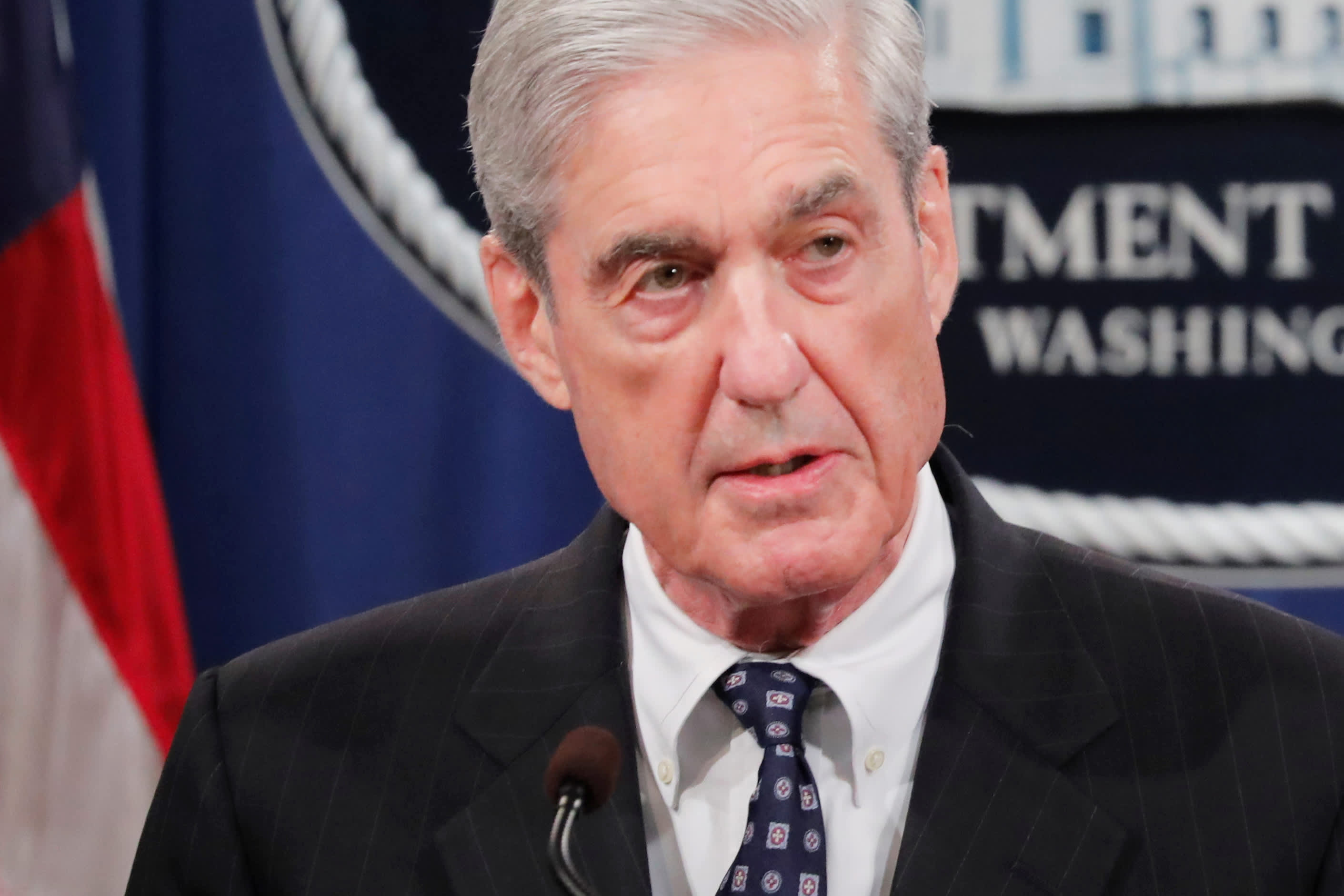Special counsel Robert Mueller: 'If we had had confidence that' President Trump 'clearly did not... - 4 minutes read

Special counsel Robert Mueller broke his silence on Wednesday on his nearly two-year investigation, saying that "if we had had confidence that the president clearly did not commit a crime, we would have said so."
Mueller's televised statement to reporters at the Justice Department in Washington — his first ever in public since being appointed special counsel in 2017 — primarily restated the main findings of his investigation, which concluded three months ago after he submitted a 448-page report to Attorney General William Barr.
But Mueller pointedly talked about the lingering question of why he did not recommend, one way or the other, if President Donald Trump should be prosecuted for obstruction of justice for interfering with his inquiry into Russian meddling in the 2016 presidential election and possible coordination with Russians by members of the Trump campaign.
"We did not make a determination as to whether" Trump "did commit a crime," Mueller said.
However, in his report to Barr, Mueller wrote that his probe did find "multiple acts by the President that were capable of exerting undue influence over law enforcement investigations."
In his remarks Wednesday, he special counsel cited a long-standing Justice Department policy barring the prosecution of a sitting president for a federal crime.
"That is unconstitutional," Mueller said, referring to the idea of such a prosecution.
"Charging the president with a crime was, therefore, not an option we could consider."
But he also noted, " if we had had confidence that the president clearly did not commit a crime, we would have said so."
U.S. Special Counsel Robert Mueller makes a statement on his investigation into Russian interference in the 2016 U.S. presidential election at the Justice Department in Washington, May 29, 2019.
Jim Bourg | Reuters
However, the special counsel noted that there was another avenue for dealing with a sitting president who broke the law.
He said that the internal Justice Department opinion barring the prosecution of a president also "says that the Constitution requires a process other than the criminal justice system to formally accuse a sitting president of wrongdoing."
That "process," which Mueller did not name, is impeachment. A growing number of Democrats in the House are calling for an impeachment inquiry because of the findings of Mueller's report, and Trump's stonewalling of their demand for testimony from people connected to him, and documents.
Trump has repeatedly denied any wrongdoing by himself or members of his campaign, and has railed against Mueller's investigation, calling it a "witch hunt."
Mueller, in his statement, also suggested that if he ultimately is forced to testify before Congress about his investigation, he "would not go beyond the findings in our report.
Those findings included his determination that there was a sustained, aggressive effort by Russian agents to use social media and computer hacking to help sway voters to Trump over Democratic contender Hillary Clinton.
Russia "launched a concerted attack on our political system," said Mueller.
But the special counsel also found that there was not sufficient evidence to charge people affiliated with the Trump campaign with conspiring with Russian agents to affect the election.
""The report is my testimony. I would not provide information beyond what is already public," Mueller said, referring to calls by Democrats in Congress that he should testify about his findings.
"I am making that decision myself. Nobody has told me whether I can or should testify or speak further about this matter," Mueller said. "There has been discussion about an appearance before Congress. Any testimony from this office would not go beyond our report."
The special counsel did not take any questions from journalists after his statement, which lasted about nine minutes.
Barr was in Alaska while the former FBI director Mueller made his comments at the Justice Department headquarters in Washington, D.C.
Trump reacted to Mueller's comments in a tweet less than an hour afterward.
Rep. Jerry Nadler, the New York Democrat who chairs the House Judiciary Committee, has said that if he does testify, Mueller prefers to do so behind closed doors instead of in public.
Nadler and his Democratic colleagues also pushed Barr to release the unredacted report of the special counsel, who obtained convictions of former national security advisor Michael Flynn, Trump campaign chief Paul Manafort, and Michael Cohen, the president's former personal lawyer.